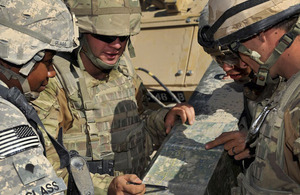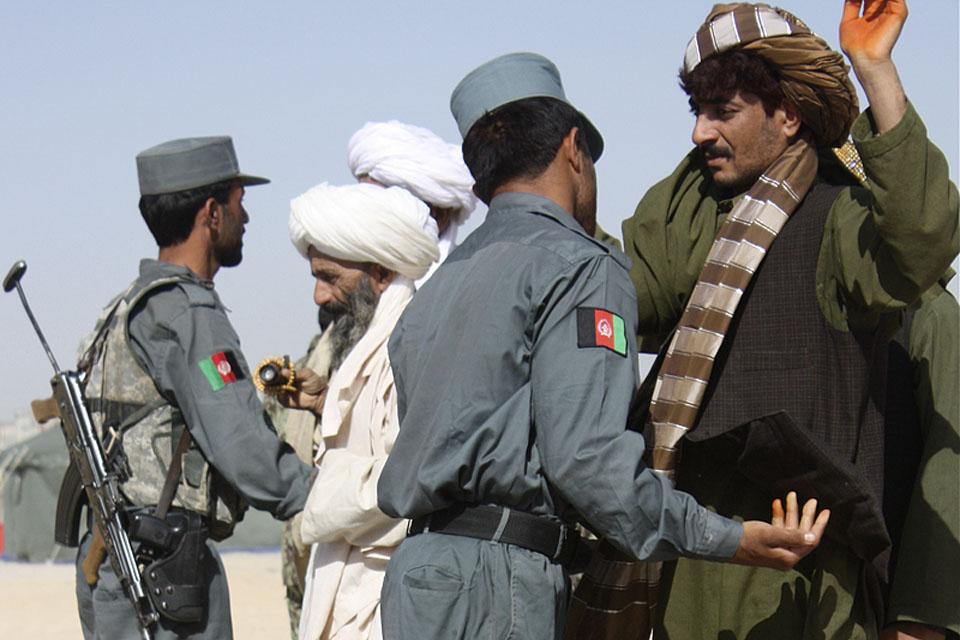Taliban leader's control weakens as infighting infects group's top ranks
Taliban leader Mullah Omar's grip on the insurgency is loosening as coalition battlefield successes in southern Afghanistan help sow discord among the Taliban top ranks and weaken the organisation, a top US commander has said.

British and American troops plan a patrol route (stock image) [Picture: Sergeant Rupert Frere RLC, Crown Copyright/MOD 2010]
The US Marine Corps’ Major General John Toolan, commander of coalition forces in the south west of Afghanistan, said:
What we have seen in the last couple of months is a lot of infighting among some of his senior leadership.
“There were some killings within and among the Taliban,” he continued.
Security analysts say that the discord among the Taliban’s leadership is a sign that coalition battlefield successes have hurt the organisation, though it might also mean that the insurgency will increasingly be in the hands of more radical junior leaders who operate independently:
That could break either way,” said David Barno, a retired three-star general at the ‘Center for a New American Security’, a defence policy think tank.
The growing disarray in the Taliban leadership comes as politicians and diplomats step up efforts to hold reconciliation talks with the Taliban.
US Secretary of State Hillary Rodham Clinton has said that political reconciliation will require talking to enemies of the United States.
Marc Grossman, the US Special Envoy to Afghanistan and Pakistan, met with Afghan officials over the weekend to discuss talks.
The progress in securing parts of Helmand province, a former Taliban stronghold and opium-growing region in southern Afghanistan, has disrupted the Taliban’s ability to raise funds and control territory.

Afghan policemen carry out searches of members of the public (stock image) [Picture: Sarah Yuen, Crown Copyright/MOD 2010]
Coalition success against the Taliban in Helmand has led to recriminations, suspicions and rivalry among top Taliban leaders who have grown fearful that there are spies and traitors throughout their ranks, Major General Toolan said.
The discord has weakened Omar’s grip:
There is some evidence that he does not have the level of control that he may have had earlier on,” Major General Toolan explained.
Omar is the cleric who ruled Afghanistan from 1996 until the Taliban was toppled by a US-led invasion following the 2001 terrorist attacks.
The US military suspects he is hiding in Pakistan with other top Taliban leaders.
Among the signs that he is struggling to control his subordinates are statements he has issued on the internet demanding Taliban adherents avoid harming civilians.
Most of the civilians killed in the war have been the victims of Taliban violence, according to the United Nations.
Despite Omar’s order, insurgents continue to attack civilians. Last week, a suicide bomber killed at least seven civilians and two policemen in the Kajaki market in Helmand province:
Now you’ve got power split into different people, and trying to find out who they are and how it works adds a bit of a challenge for us,” Major General Toolan said.